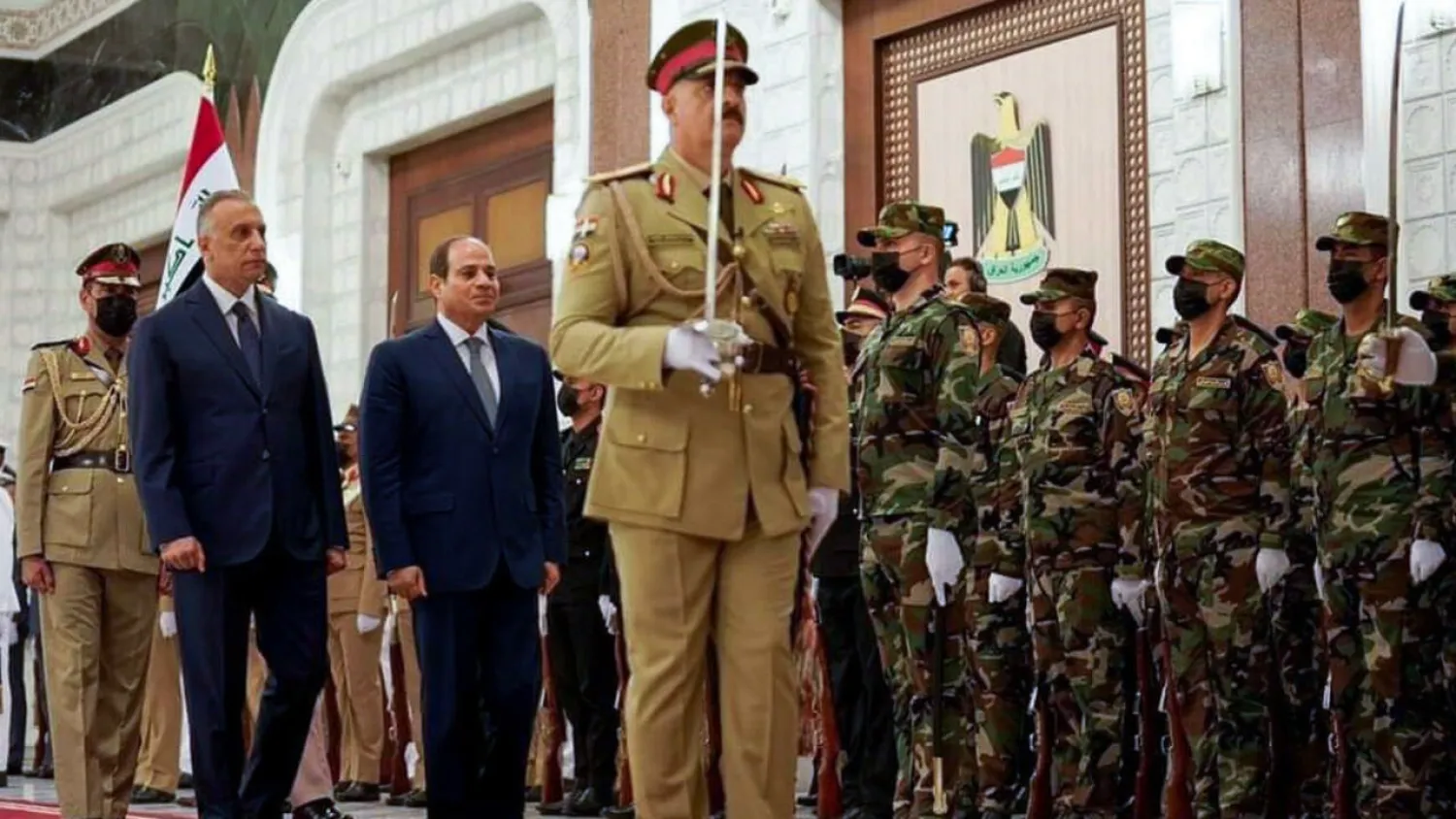After decades of conflict, Iraq will pitch itself as a regional mediator as it hosts a leaders’ summit this week -- despite foreign influence on its territory and a grinding financial crisis.
The meeting in Baghdad on Saturday seeks to give Iraq a “unifying role” to tackle the crises shaking the region, according to sources close to Prime Minister Mustafa al-Kadhimi.
Egyptian President Abdel Fattah al-Sisi and Jordan’s King Abdullah II have said they plan to attend, as has French President Emmanuel Macron, the only official expected from outside the region.
Leaders from Saudi Arabia, Turkey and Iran have also been invited.
Kadhimi came to power in May last year after months of unprecedented mass protests against a ruling class seen as corrupt, inept and subordinate to Tehran.
The new premier had served as the head of Iraq’s National Intelligence Service for nearly four years, forming close ties to Tehran, Washington and Riyadh.
His appointment prompted speculation he could serve as a rare mediator among the capitals.
“In the past, under Saddam Hussein, Iraq was a state that was feared and despised in the region and everyone saw it as a threat,” said Iraqi political expert Marsin Alshamary.
After the 2003 US-led invasion, it became “a weak state”, prone to external influences and meddling.
But Saturday’s summit, she said, could be “a positive thing for Iraq”.
‘Not just a playground’
Renad Mansour of Chatham House said the aim was to transform Iraq from “a country of messengers to a country that is leading negotiations”.
Organizers have been tight-lipped on the meeting’s agenda.
Iraq has been caught for years in a delicate balancing act between its two main allies Iran and the United States.
“The ambition is for Iraq to not just be a playground but actually have a role potentially as a mediating force,” Mansour said.
Iran exerts major clout in Iraq through allied armed groups within the Popular Mobilization Forces (PMF), a powerful state-sponsored paramilitary network.
Since the 2019 anti-government protests, dozens of activists have been killed or abducted.
Some say the killers are known to the security services and despite government promises of arrests, remain at large -- due to their ties to Iran.
Shiite factions operating under the PMF are also accused of dozens of attacks this year against US interests in Iraq.
Kadhimi is under pressure from pro-Tehran armed factions, who demand the withdrawal of 2,500 US troops still deployed in Iraq.
‘Take back control’
Turkey is another regional power with an outsized presence in Iraq.
Ankara regularly targets Iraq’s northwest in operations against the Kurdistan Workers’ Party (PKK), which Turkey considers a terrorist organization.
The Kurdish separatists, who have waged a decades-long insurgency against Ankara, have bases in the rugged mountains on the Iraqi side of the border.
The Turkish operations, have sometimes killed civilians and have irked Baghdad, but it remains reluctant to alienate a vital trading partner.
President Recep Tayyip Erdogan has been invited to Saturday’s conference, though his attendance has not yet been confirmed.
By convening the summit, Kadhimi is also taking a gamble on the domestic front, less than two months before general elections.
Though he is not facing re-election himself, he will have much at stake.
“There will be another coalition government and the different parties will have to settle on a compromise prime minister,” Alshamary said.
Iraq, long plagued by endemic corruption, poor services, dilapidated infrastructure and unemployment, is facing a deep financial crisis compounded by lower oil prices and the Covid-19 pandemic.
“Iraqis are struggling,” said Mansour, adding that many were facing “the brunt of corruption”.
“It has been the summer of hospital fires and lack of electricity, drought... and more generally a political system that neither responds to the needs of Iraqis nor represents Iraqis,” Mansour said.
But Saturday’s conference is mainly about the country’s standing in the region.
“Iraq wants to take back control of its trajectory,” said one foreign observer on condition of anonymity.
“Above all, it no longer wants to be subjected to the effects of regional tensions on its territory.”









